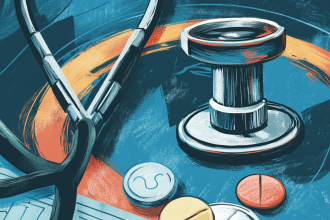As first reported by Nerdbot, the medtech industry is undergoing a digital revolution powered by AI, IoT, and cloud technologies—but with this progress comes increased vulnerability to cyber threats.
The integration of robust cybersecurity frameworks has become essential not only to safeguard patient data but also to enable faster, more efficient product development and maintain the confidence of regulators, healthcare providers, and end users. The rising frequency of cyberattacks—up more than 55% since 2020—underscores the urgency of security in medical device innovation.
Modern medtech companies are embedding cybersecurity into the earliest stages of development. This proactive strategy enables smoother compliance with regulations such as HIPAA, FDA guidance, and GDPR, ultimately expediting regulatory approvals. In an industry where delays can result in millions of dollars in losses, early adoption of security measures helps avoid costly breaches, product recalls, or approval setbacks—keeping products on track for timely market entry.
Accelerating Launches, Reducing Risk
Contrary to traditional views that cybersecurity slows innovation, integrated security measures now act as enablers. Medical devices equipped with strong data protection protocols gain regulatory trust and reduce time-to-market by months. By identifying vulnerabilities during the R&D phase, medtech companies minimize errors and prevent downstream disruptions. This leads to a more agile, cost-effective development cycle—essential in a highly competitive and regulated industry.
Trust is a currency in medtech. Secure devices build confidence with patients, who are increasingly wary of data privacy risks. Transparent cybersecurity practices not only protect sensitive health data but also strengthen adoption, retention, and engagement. Moreover, hospitals and insurers favor partnerships with medtech firms that can demonstrate robust cybersecurity practices, viewing them as more dependable integration partners.
Ensuring Resilience and Long-Term Success
Cybersecurity is also a long-term investment in business continuity. With the average healthcare data breach costing over $10 million, prevention strategies like encryption, real-time monitoring, and secure software architectures are vital. For connected medical devices, ensuring uninterrupted performance during a cyber event is not just about data protection—it’s about patient safety. As the industry moves into an era defined by the Internet of Medical Things (IoMT) and AI-driven diagnostics, future-proofing solutions requires adaptive cybersecurity infrastructures. Companies that embed security into their foundation will be better equipped to meet regulatory shifts, adopt emerging technologies, and maintain a competitive edge.
Cybersecurity is no longer an optional layer of protection—it’s a strategic asset at the heart of medtech innovation. Integrating robust security practices from the outset empowers companies to build trust, speed up development, and remain resilient in an evolving digital healthcare landscape. With cybersecurity as a foundation, medtech companies are poised not just to protect, but to lead.





